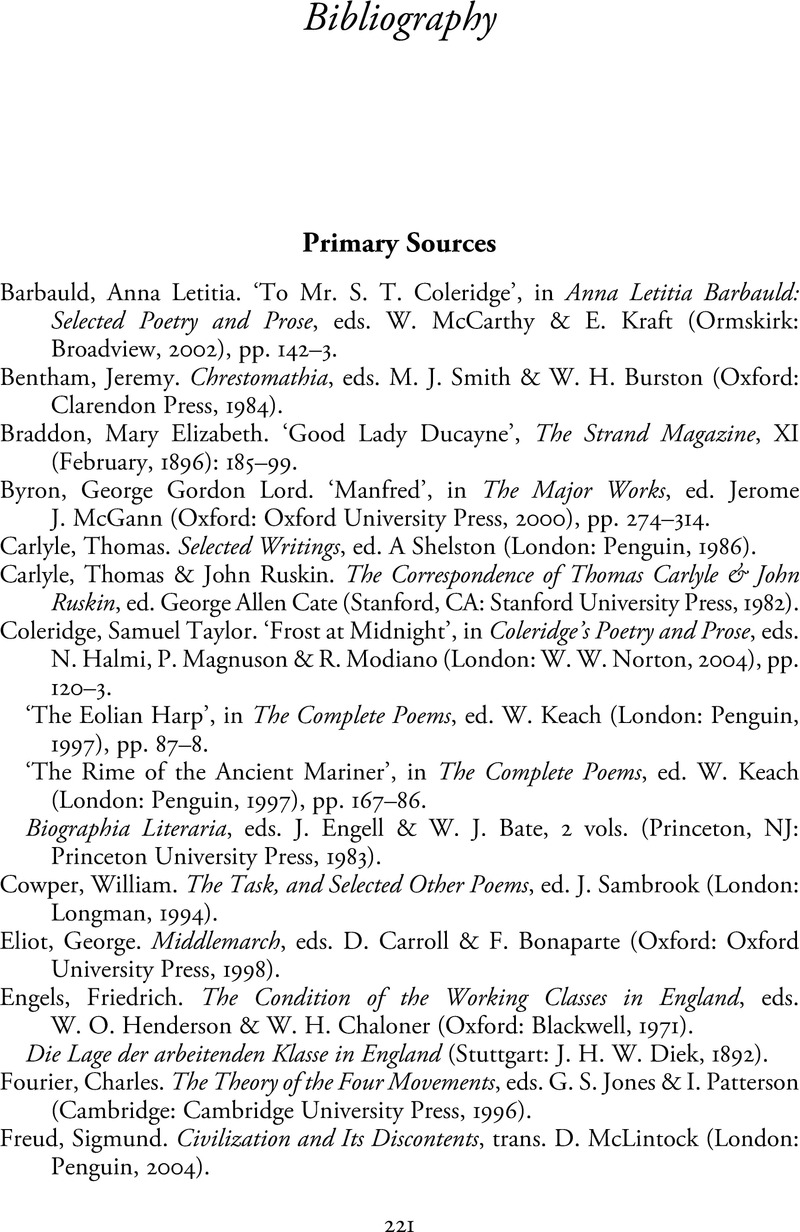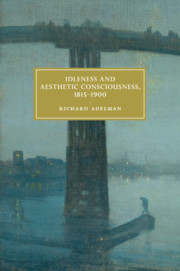Book contents
- Idleness and Aesthetic Consciousness, 1815–1900
- Cambridge Studies in Nineteenth-Century Literature and Culture
- Idleness and Aesthetic Consciousness, 1815–1900
- Copyright page
- Contents
- Acknowledgements
- Abbreviations
- Introduction
- Chapter 1 Idleness, Moral Consciousness and Sociability
- Chapter 2 Political Economy and the Logic of Idleness
- Chapter 3 The ‘Gospel of Work’
- Chapter 4 Cultural Theory and Aesthetic Failure
- Chapter 5 The Gothicization of Idleness
- Conclusion
- Epilogue Substitutive Satisfaction
- Notes
- Bibliography
- Index
- Cambridge Studies in Nineteenth-Century Literature and Culture
- References
Bibliography
Published online by Cambridge University Press: 16 July 2018
- Idleness and Aesthetic Consciousness, 1815–1900
- Cambridge Studies in Nineteenth-Century Literature and Culture
- Idleness and Aesthetic Consciousness, 1815–1900
- Copyright page
- Contents
- Acknowledgements
- Abbreviations
- Introduction
- Chapter 1 Idleness, Moral Consciousness and Sociability
- Chapter 2 Political Economy and the Logic of Idleness
- Chapter 3 The ‘Gospel of Work’
- Chapter 4 Cultural Theory and Aesthetic Failure
- Chapter 5 The Gothicization of Idleness
- Conclusion
- Epilogue Substitutive Satisfaction
- Notes
- Bibliography
- Index
- Cambridge Studies in Nineteenth-Century Literature and Culture
- References
Summary

- Type
- Chapter
- Information
- Idleness and Aesthetic Consciousness, 1815–1900 , pp. 221 - 230Publisher: Cambridge University PressPrint publication year: 2018



